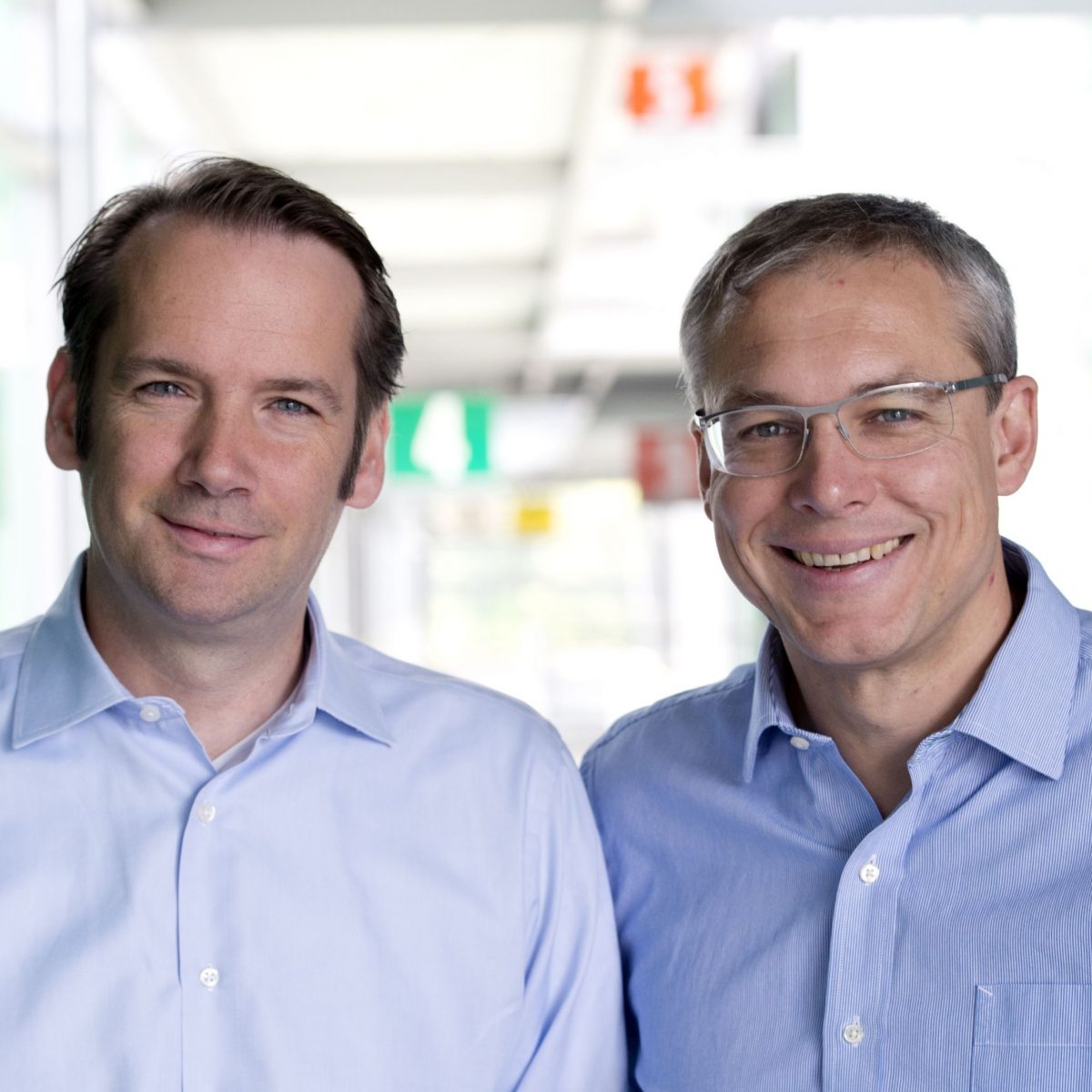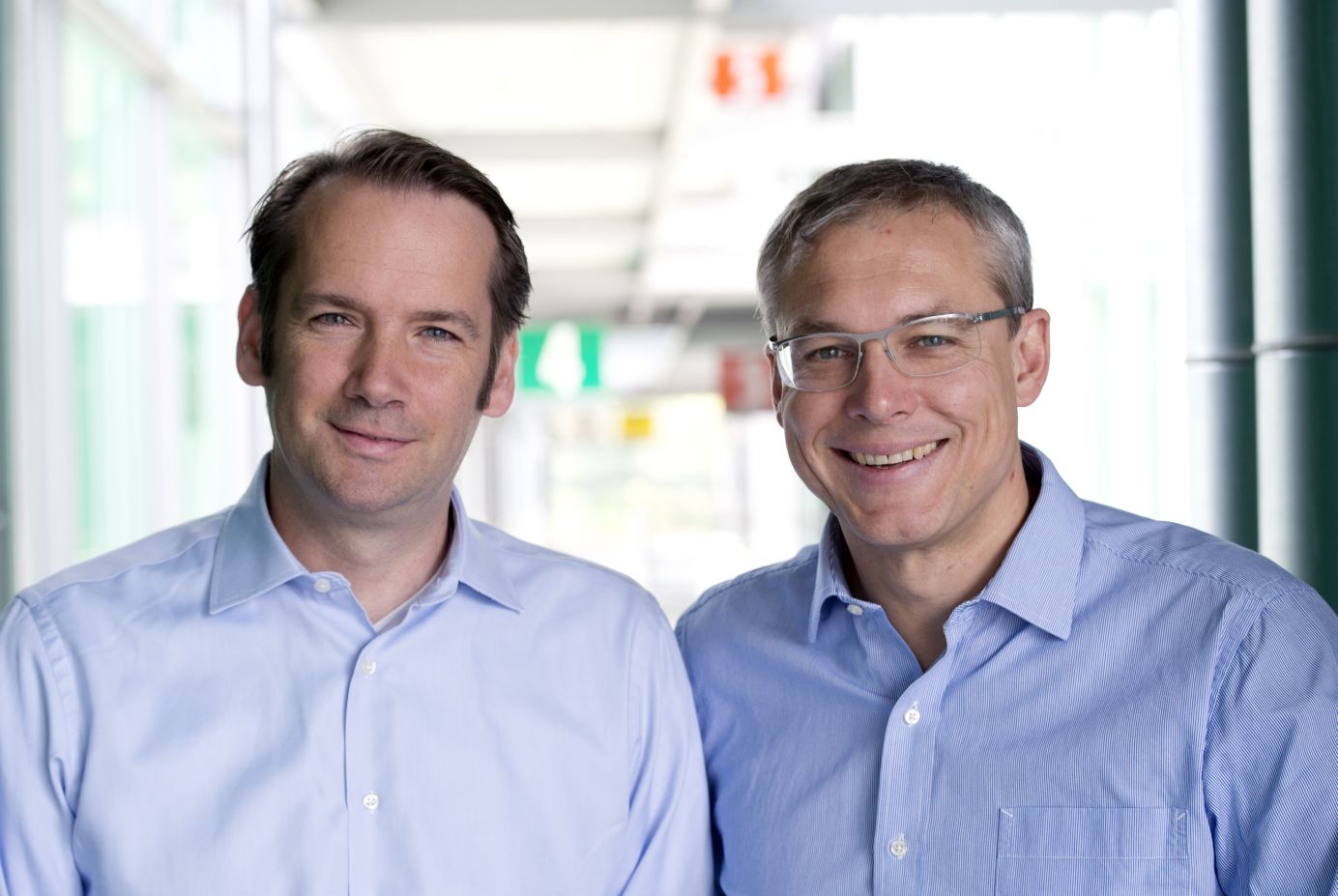
Roman Zantl (l.) and Valentin Kahl both earned their doctorates at the Chair of Biophysics and launched their company immediately after graduation (Picture: ibidi GmbH).
Entrepreneurs Valentin Kahl and Roman Zantl
“Contributing to a Better Understanding of Serious Diseases”
AS AN EQUAL
The founding duo met almost twenty years ago at the TUM Chair of Biophysics, where they both did their doctorates at the same time. “Professor Erich Sackmann’s chair, which had a very international network, with many collaborations and very good team spirit, had a major influence on me”, Valentin Kahl recalls. Roman Zantl goes on to say that TUM provided them with the necessary tools of the trade, ranging from calculating to the experimental lectures. Also with regard to people, he has fond memories of TUM and especially of Erich Sackmann: “Even though he obviously had more knowledge, I always felt like I was treated as an equal.”
WHAT BETTER TIME TO START A BUSINESS THAN RIGHT AFTER GRADUATION.
Over the years, the company has grown, received numerous awards for innovation, and is now at the top of the biotech league. What has been the founders’ driving force over all these years: “To contribute to a better understanding of serious diseases and thus to be able to improve their treatment”, Valentin Kahl says and points out that even though the understanding and knowledge of biological processes is continuously increasing, there are still numerous diseases that cause great suffering. “Providing the basic tools and thus being part of a solution is what drives us.”
KEEN ENTREPRENEURIAL SPIRIT
In addition to their enthusiasm for their product, Kahl and Zantl have a keen entrepreneurial spirit. Even as a child, Valentin Kahl was interested in the company processes in his family’s environment and came to the conclusion that being an entrepreneur offers the greatest creative freedom. Co-founder Roman Zantl concurs: “I always liked the entrepreneur’s approach of being able to determine ones own life.” Together, they form a team that blends their talents in the best possible way: While Valentin Kahl is responsible for production, administration and finances, Roman Zantl is primarily in charge of research, development and sales.
For TUM graduates considering to start their own business, Valentin Kahl has the following advice: “If the founding team has similar ideas regarding company development, just go for it.” However, the market demands should not be ignored, Roman Zantl adds: “Technologists frequently display great enthusiasm for their technology and little knowledge of the market. I would therefore advise to answer market-related questions as early as before and during the start-up process.” These include for example the following: Is there a need for the product being offered? Does the product offer sales-critical advantages? And what is the competition like? “If you have reliable answers to these questions, you can use your technology in the best possible way.”

Valentin Kahl and Roman Zantl (Picture: ibidi GmbH).
Valentin Kahl and Roman Zantl
Both doctorate Biophysics 2001
After studying Physics at Heidelberg University, in 1998 Valentin Kahl came to TUM to pursue his doctorate. Under the supervision of Professor Erich Sackmann, he wrote his dissertation at the Chair of Biophysics, where he met co-founder Roman Zantl.
Roman Zantl earned his Physics degree from TUM in 1997, which was followed by a doctorate at the Chair of Biophysics. Roman Zantl and Valentin Kahl both conducted research in the working group led by Dr. Joachim Rädler, who at the time was still a postdoctoral fellow at the department. They developed a first idea for a start-up and entered in the Munich Business Plan Competition. After modifying the initial product idea, in 2001 they set up their startup together with Professor Joachim and Dr. Ulf Rädler, who today also holds a leading position in the company, as a spin-off of TUM and the LMU’s Center for Nanoscience in Munich.
ibidi GmbH first moved to the Innovation and Start-up Center Biotechnology (IZB) in Martinsried, later to its current location in Gräfelfing. Since 2015, Roman Zantl has also been the founder and managing director of ibidi USA.
Today, ibidi GmbH develops, produces and sells systems that are needed, among other things, in basic research and assist in analyzing human cells under almost lifelike conditions over a period of days.